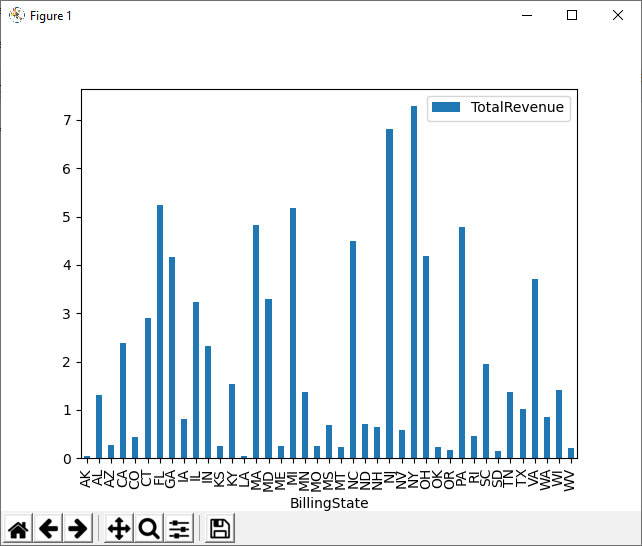Discover how a bimodal integration strategy can address the major data management challenges facing your organization today.
Get the Report →How to Visualize Jira Assets Data in Python with pandas
Use pandas and other modules to analyze and visualize live Jira Assets data in Python.
The rich ecosystem of Python modules lets you get to work quickly and integrate your systems more effectively. With the CData Python Connector for Jira Assets, the pandas & Matplotlib modules, and the SQLAlchemy toolkit, you can build Jira Assets-connected Python applications and scripts for visualizing Jira Assets data. This article shows how to use the pandas, SQLAlchemy, and Matplotlib built-in functions to connect to Jira Assets data, execute queries, and visualize the results.
With built-in optimized data processing, the CData Python Connector offers unmatched performance for interacting with live Jira Assets data in Python. When you issue complex SQL queries from Jira Assets, the driver pushes supported SQL operations, like filters and aggregations, directly to Jira Assets and utilizes the embedded SQL engine to process unsupported operations client-side (often SQL functions and JOIN operations).
Connecting to Jira Assets Data
Connecting to Jira Assets data looks just like connecting to any relational data source. Create a connection string using the required connection properties. For this article, you will pass the connection string as a parameter to the create_engine function.
Jira Assets supports connecting and authenticating via the APIToken.
To generate an API token:
- Log in to your Atlassian account.
- Navigate to Security < Create and manage API Token < Create API Token.
Atlassian generates and then displays the API token.
After you have generated the API token, set these parameters:
- AuthScheme: APIToken.
- User: The login of the authenticating user.
- APIToken: The API token you just generated.
You are now ready to connect and authenticate to Jira Assets.
Follow the procedure below to install the required modules and start accessing Jira Assets through Python objects.
Install Required Modules
Use the pip utility to install the pandas & Matplotlib modules and the SQLAlchemy toolkit:
pip install pandas pip install matplotlib pip install sqlalchemy
Be sure to import the module with the following:
import pandas import matplotlib.pyplot as plt from sqlalchemy import create_engine
Visualize Jira Assets Data in Python
You can now connect with a connection string. Use the create_engine function to create an Engine for working with Jira Assets data.
engine = create_engine("jiraassets:///?User=MyUser&APIToken=myApiToken&Url=https://yoursitename.atlassian.net")
Execute SQL to Jira Assets
Use the read_sql function from pandas to execute any SQL statement and store the resultset in a DataFrame.
df = pandas.read_sql("SELECT ID, Name FROM Objects WHERE Label = 'SYD-1'", engine)
Visualize Jira Assets Data
With the query results stored in a DataFrame, use the plot function to build a chart to display the Jira Assets data. The show method displays the chart in a new window.
df.plot(kind="bar", x="ID", y="Name") plt.show()

Free Trial & More Information
Download a free, 30-day trial of the CData Python Connector for Jira Assets to start building Python apps and scripts with connectivity to Jira Assets data. Reach out to our Support Team if you have any questions.
Full Source Code
import pandas
import matplotlib.pyplot as plt
from sqlalchemy import create_engin
engine = create_engine("jiraassets:///?User=MyUser&APIToken=myApiToken&Url=https://yoursitename.atlassian.net")
df = pandas.read_sql("SELECT ID, Name FROM Objects WHERE Label = 'SYD-1'", engine)
df.plot(kind="bar", x="ID", y="Name")
plt.show()





